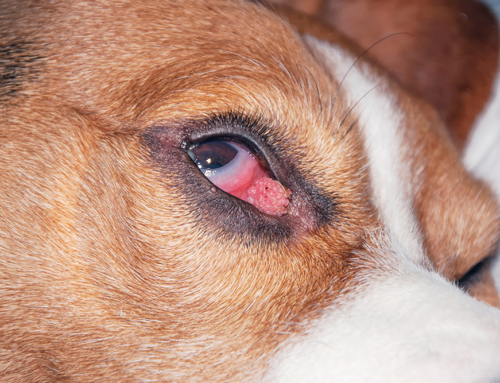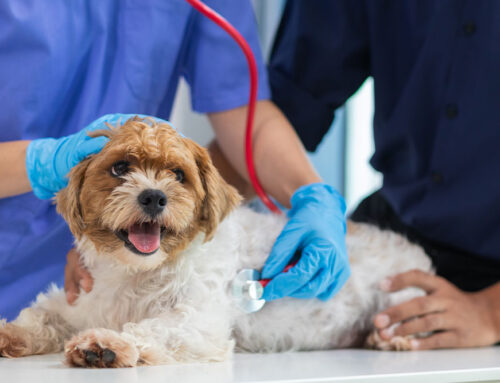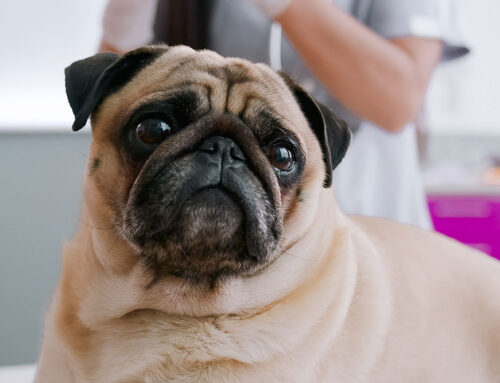Pedigreed dogs and cats often have genetic predispositions to certain health conditions, and pet owners must recognize and understand these issues to provide proactive care and manage potential health risks effectively. Our Boca Midtowne Animal Hospital team wants to help you be your pet’s hero, and we offer information about common breed-related health problems.
Breed-related problems in brachycephalic pets
Brachycephalic breeds, such as pugs, French bulldogs, boxers, and Cavalier King Charles spaniels, are adorable with their smushed faces and prominent eyes, but their cuteness comes at a cost. These breeds are at high risk for numerous health conditions, including:
- Brachycephalic Obstructive Airway Syndrome (BOAS) — Brachycephalic pets have shortened noses and skulls that cause abnormalities, such as an elongated and thickened soft palate, narrowed nostrils, and tissues in the airway, that obstruct airflow. These malformations lead to upper respiratory problems resulting in difficulty breathing, noisy breathing, exercise intolerance, and regurgitation or vomiting. Minimally invasive corrective laser surgery can help these pets breathe better and improve their quality of life.
- Skin conditions — Many brachycephalic breeds have excess skin folds that can easily become infected if not cleaned properly. In addition, these pets are also often prone to allergies, leading to skin inflammation and excessive itchiness.
- Eye issues — Brachycephalic breeds have prominent eyes that make them vulnerable to corneal ulcers. They are also at high risk for conditions such as cherry eye and entropion (i.e., inward rolling of eyelids).
Breed-related problems in large-breed dogs
Breed-related problems that commonly affect large-breed dogs include:
- Orthopedic conditions — Large- and giant-breed dogs are susceptible to orthopedic conditions such as hip and elbow dysplasia, cranial cruciate ligament disease, and osteoarthritis (OA) because of their rapid growth and heavy body weight.
- Gastric dilatation volvulus (GDV) — Deep-chested breeds, such as Great Danes, weimaraners, and Doberman pinschers, are at increased risk for GDV (also known as bloat), a life-threatening condition characterized by stomach rotation, leading to bloating and shock.
- Dilated cardiomyopathy (DCM) — Breeds, including Doberman pinschers, Great Danes, and boxers, are at increased risk for DCM, a condition that results in enlarged hearts and poor pumping ability.
- Obesity — Retrievers are especially susceptible to obesity, which puts them at risk for health conditions such as cancer, OA, diabetes, and kidney disease.
Breed-related problems in small-breed dogs
Common breed-related problems in small-breed dogs include:
- Dental problems — Toy- and small-breed dogs typically have crowded teeth and dental malocclusions, predisposing them to dental disease, tooth decay, and oral infections.
- Luxating patella — Small-breed dogs are prone to luxating patella, a condition in which the kneecap dislocates or moves out of its normal position, causing lameness and discomfort.
- Intervertebral disc disease (IVDD) — Small breeds, such as dachshunds and corgis, are at increased risk for IVDD, which causes spinal cord compression, leading to pain and mobility problems.
Breed-related problems in cats

Certain cat breeds also experience health problems, including:
- Siamese and Oriental breeds — These cats are predisposed to upper respiratory conditions such as feline asthma and chronic rhinitis and may also be prone to dental issues, such as gingivitis and dental disease.
- Persians and exotic shorthairs — These felines are susceptible to eye conditions such as cherry eye, entropion, and excessive tearing and are genetically predisposed to polycystic kidney disease (PKD), a progressive kidney disorder characterized by fluid-filled cysts forming in the kidneys.
- Maine Coons and ragdolls — These breeds are prone to hypertrophic cardiomyopathy (HCM), which is a condition characterized by thickening of the heart muscle, leading to impaired heart function and eventually heart failure. Maine Coons are also at higher risk for hip dysplasia.
Understanding your pet’s breed-related health concerns is crucial for early detection, prevention, and management of potential problems. Regular veterinary checkups, genetic testing, preventive care measures, and breed-specific health screenings can help identify and address these issues proactively, ensuring your four-legged friend enjoys a happy, healthy life. Contact our Boca Midtowne Animal Hospital team so we can assess your pet’s unique health needs.







Leave A Comment